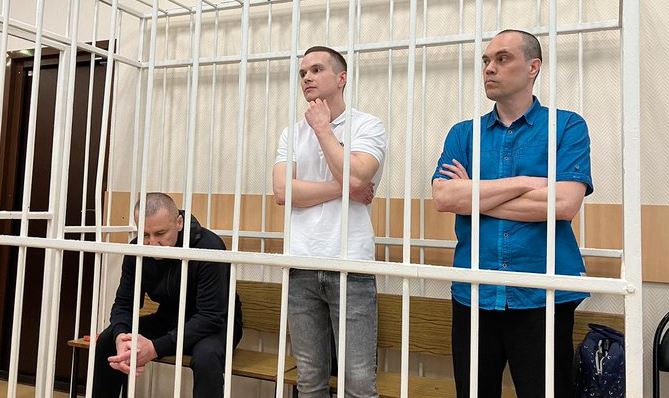In a move that has drawn international criticism, a Russian court has sentenced three lawyers associated with the late opposition leader Alexei Navalny to prison terms ranging from 3.5 to 5.5 years on charges of extremism. Vadim Kobzev, Alexei Liptser, and Igor Sergunin, who were part of Navalny’s legal team, were convicted in a trial that was largely conducted behind closed doors, highlighting the ongoing clampdown on dissent in Russia.
The accusations against Kobzev, Liptser, and Sergunin stem from their alleged involvement in what the Russian authorities have labeled an “extremist community.” This charge is linked to their activities of passing letters between Navalny and his supporters while he was imprisoned, effectively enabling him to continue leading his political movement from behind bars.
Also Read: 25 Years of Putin: The Making of Russia’s Unchallenged Leader

Alexei Navalny, known for his anti-corruption campaigns and fierce opposition to President Vladimir Putin, died under suspicious circumstances in an Arctic penal colony earlier this year, prompting global outrage and calls for investigations into his death. His death has not halted the legal persecution of his allies, with this latest ruling against his lawyers being seen as part of a broader strategy to suppress any remnants of his political influence.
The sentences handed down are as follows: Vadim Kobzev received 5.5 years, Alexei Liptser was sentenced to 5 years, and Igor Sergunin got 3.5 years. Critics argue that these verdicts are emblematic of the Russian government’s increasing use of the judiciary to silence opposition voices, especially in the context of the ongoing war in Ukraine, which has seen a significant escalation in the suppression of free speech and political dissent.
International human rights organizations and Western governments have condemned the sentences, seeing them as a direct attack on legal representation and the rule of law in Russia. This case raises further concerns about the safety and rights of those who defend political prisoners and activists in Russia, potentially chilling the legal profession’s willingness to take on controversial cases.
As Russia continues to navigate its internal politics under Putin’s long-standing leadership, the sentencing of Navalny’s lawyers underscores the challenges faced by opposition figures and their supporters in maintaining any form of political activism against the backdrop of an increasingly authoritarian regime. This development is likely to echo in diplomatic circles and human rights discussions globally, spotlighting the health of democracy and judicial independence in Russia.



